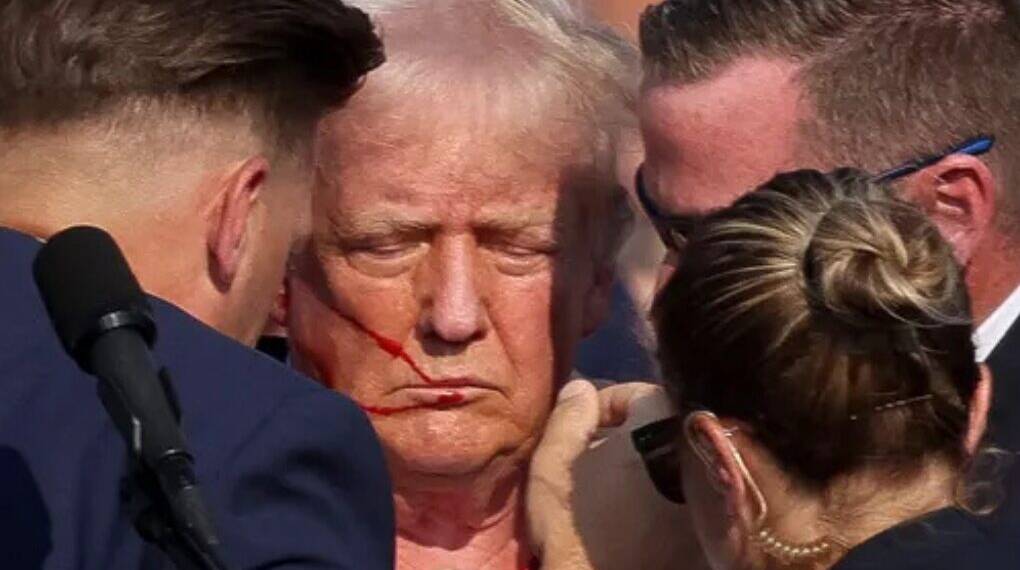A senior advisor to Iran’s Supreme Leader, Ayatollah Ali Khamenei, Mohammad-Javad Larijani, has ignited international controversy by publicly threatening U.S. President Donald Trump with assassination.
The remarks, made on Iranian state television, have escalated already tense U.S.-Iran relations and sparked widespread debate about political rhetoric, security, and the legacy of past conflicts between the two nations.
The Threat: What Was Said?
Javad Larijani, a prominent Iranian political figure and advisor to Khamenei, stated that Trump could be targeted by a drone strike even while relaxing at his Mar-a-Lago residence in Florida.
In his televised comments, Larijani declared: “Trump has done something so that he can no longer sunbathe in Mar-a-Lago. As he lies there with his stomach to the sun, a small drone might hit him in the navel. It’s straightforward.”
This statement was a direct reference to Trump’s role in ordering the 2020 U.S. drone strike that killed Iranian General Qassem Soleimani. This pivotal event has continued to fuel Iranian calls for retribution.
Also Read: Trump “Obliterated Iran nuclear facilities” claims: Myth or reality ?
Why Now?
The threat comes in the aftermath of a series of escalations between the U.S. and Iran:
Iran suffered a setback in a 12-day war with Israel, during which the U.S. supported Israeli military actions and reportedly struck Iranian nuclear facilities.
The 2020 assassination of Qassem Soleimani also remains a focal point of Iranian grievances, with Iranian leaders repeatedly vowing revenge against those responsible.
Hardline Iranian clerics have issued fatwas calling for the killing of both Trump and Israeli Prime Minister Benjamin Netanyahu, labeling them “infidel combatants” and rallying public support for retribution.
The “Blood Pact” Crowdfunding Campaign
Adding to the gravity of Larijani’s remarks is the emergence of an online crowdfunding campaign called Ahde Khoun (“Blood Pact”). This platform claims to have raised over $27 million, with some reports suggesting the figure could be as high as $40 million, to fund acts of retribution against perceived enemies of Iran’s leadership, especially those involved in actions against Khamenei.
The campaign’s homepage pledges a bounty to anyone who “can bring the enemies of God and those who threaten the life of Ali Khamenei to justice.”
The stated fundraising goal is $100 million, though the authenticity of the collected amounts has not been independently verified.
U.S. and Trump’s Response
Donald Trump, when questioned about the threat, responded with characteristic bravado and humor, downplaying the seriousness of the remarks.
In a Fox News interview, Trump joked that he hasn’t sunbathed since he was seven, effectively brushing off the threat while acknowledging its existence.
U.S. officials have also played down the threat publicly, but the situation has nonetheless heightened security concerns around Trump and other former U.S. officials involved in the Soleimani operation.
International and Domestic Reactions
President Masoud Pezeshkian has attempted to distance his administration from the assassination campaign, stating in an interview that “the fatwa of warfare has nothing to do with the Iranian government or the Supreme Leader.”
State-affiliated media and clerics have amplified calls for retribution, urging public demonstrations and further support for the Blood Pact campaign.
The threat has revived memories of past political assassinations and underscored the persistent vulnerability of high-profile leaders to targeted violence.
Implications for U.S.-Iran Relations
The threat against Trump is more than rhetorical bluster; it reflects the enduring hostilities and unresolved grievances between the U.S. and Iran.
U.S. authorities are likely to increase security for Trump and other officials named in Iranian threats.
The threat undermines prospects for dialogue and further complicates efforts to manage nuclear tensions and regional conflicts.
The rhetoric and crowdfunding campaign risk normalizing political violence and inflaming nationalist sentiments in both countries.
Also Read: Trump-Netanyahu Meet: Israel Gaza Ceasefire on Table? Is Iran Next?
The assassination threat against Donald Trump by a senior advisor to Iran’s Supreme Leader marks a dangerous escalation in the rhetoric and tactics employed in the ongoing U.S.-Iran conflict.
While the Iranian government has sought to distance itself from direct calls for violence, the combination of public threats, religious decrees, and crowdfunding campaigns signals a volatile and unpredictable phase in bilateral relations.
The international community will be watching closely to see how both nations manage the fallout from these provocative statements and whether cooler heads can prevail to prevent further escalation.








